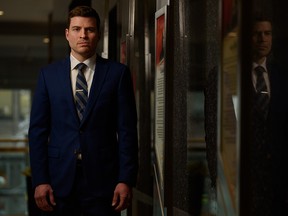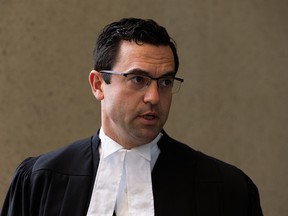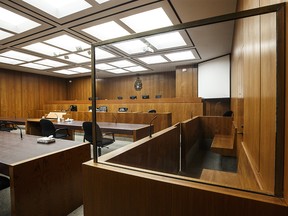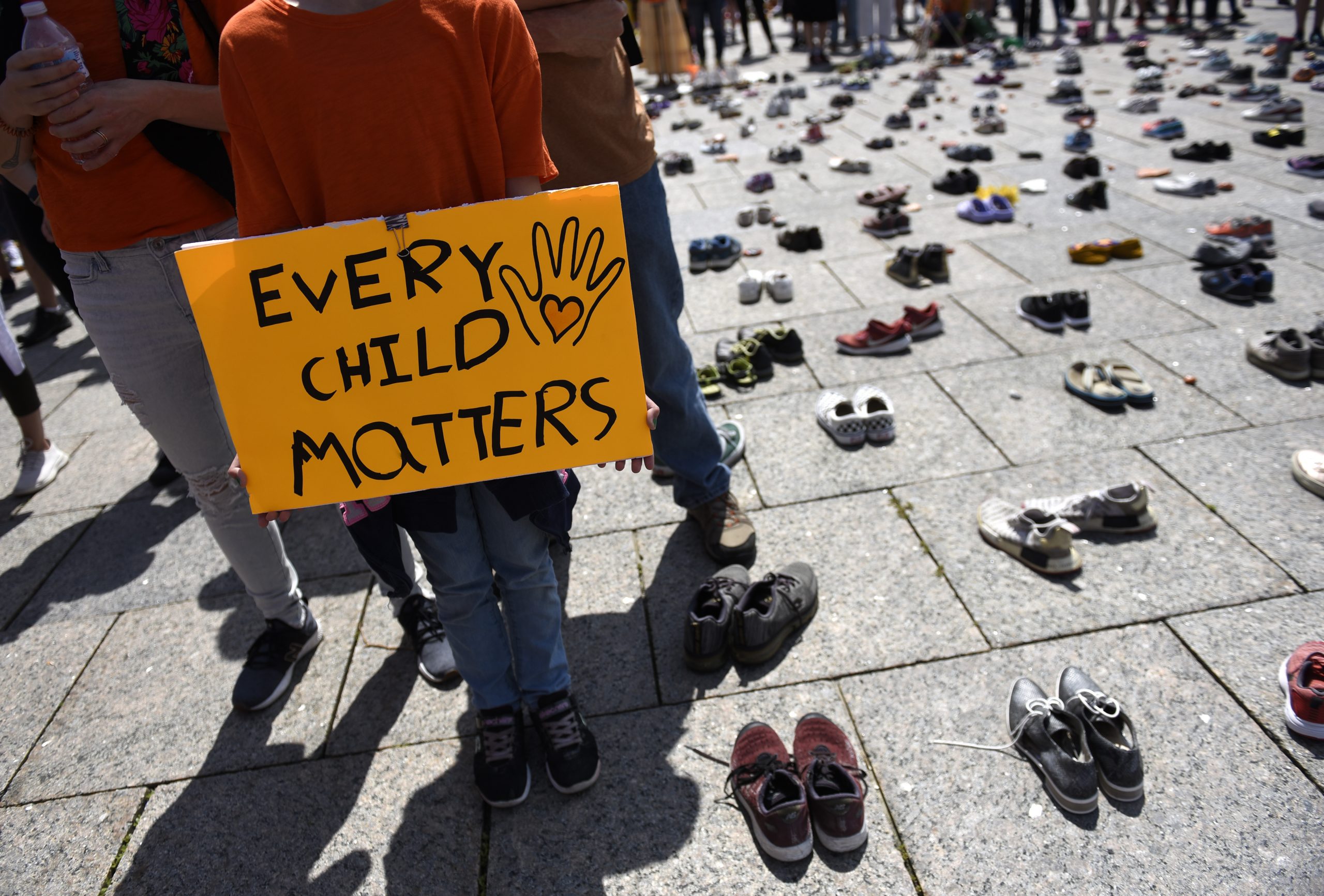ALBERTA
Health unions keep up call for 'collective' meeting with health minister
Story by Madeline Smith • Sunday, Nov. 27,2022 - Edmonton Journal
The president of the union representing Alberta nurses says despite speaking with government officials separately, labour groups for health workers have yet to have the “collective” meeting they want as the health-care system strains under pressure again.

United Nurses of Alberta (UNA) president Heather Smith takes part in a news conference where Alberta's health-care unions advocated that the government take steps to fully address the staffing crisis in health care on Oct. 24, 2022.
Shortly after Premier Danielle Smith’s new cabinet was sworn in last month, the United Nurses of Alberta (UNA), Health Sciences Association of Alberta (HSAA), Alberta Union of Provincial Employees (AUPE) and Canadian Union of Public Employees (CUPE) came together to “insist” on meeting with the health minister to talk about improving the health-care system.
When the government announced just a few weeks later that the Alberta Health Services board would be dismantled and replaced with a single official administrator, Smith said she and Health Minister Jason Copping had just spoken with AUPE, HSAA and UNA leaders.
Related
AHS board dismantled as Dr. John Cowell named new administrator
The premier said the major shift in AHS management is aimed at accelerating change that will ease the current burden on the health system and help the burned-out front line.
“We’re doing all of this to be able to support them, create a better working environment to make sure that they feel valued,” she said.
“They know that we know what the solutions are. They want us to work on them,” she said, adding the province intends to take a consultative approach.
Related video: Provinces call on Ottawa for more health-care fundingDuration 8:31 View on Watch
UNA president Heather Smith confirmed she spoke with the premier and health minister ahead of the AHS administrator announcement, but said Saturday it wasn’t the type of meeting unions have requested.
She still thinks a broader discussion is warranted because “the deficits here in the province are clearly across the entire continuum of workers.”
The November meeting provided advance notice about the decision to change the AHS leadership structure, a move that the UNA leader said comes with its own challenges.
“The announcement of the elimination of the board and subsequent comments in terms of AHS and getting rid of managers — it’s rather unfortunate,” Smith said.
“It causes a great deal of uncertainty at higher levels of the organization, but uncertainty in terms of what that means on the ground as well.”
HSAA president Mike Parker, who represents numerous health workers including paramedics, issued his own statement raising concern about the possibility of “organizational chaos” in health care, while AUPE’s Guy Smith added workers need stability, “not the chaos that could result from a change in administration and direction.”
But the groups said they’re encouraged to hear the premier and health minister talk about the need to address staffing shortages. New administrator Dr. John Cowell has been told to focus on decreasing wait times in emergency rooms and for surgeries, improving EMS response times and consulting with front-line workers on reforms.
The HSAA’s Parker said his message to the premier was the need for direct support for health workers.
“The premier says we have entered the ‘action phase’ of reforming health care,” he said.
“That means overcoming staffing shortages and improving working conditions so we can care for Albertans.”
The November meeting provided advance notice about the decision to change the AHS leadership structure, a move that the UNA leader said comes with its own challenges.
“The announcement of the elimination of the board and subsequent comments in terms of AHS and getting rid of managers — it’s rather unfortunate,” Smith said.
“It causes a great deal of uncertainty at higher levels of the organization, but uncertainty in terms of what that means on the ground as well.”
HSAA president Mike Parker, who represents numerous health workers including paramedics, issued his own statement raising concern about the possibility of “organizational chaos” in health care, while AUPE’s Guy Smith added workers need stability, “not the chaos that could result from a change in administration and direction.”
But the groups said they’re encouraged to hear the premier and health minister talk about the need to address staffing shortages. New administrator Dr. John Cowell has been told to focus on decreasing wait times in emergency rooms and for surgeries, improving EMS response times and consulting with front-line workers on reforms.
The HSAA’s Parker said his message to the premier was the need for direct support for health workers.
“The premier says we have entered the ‘action phase’ of reforming health care,” he said.
“That means overcoming staffing shortages and improving working conditions so we can care for Albertans.”























